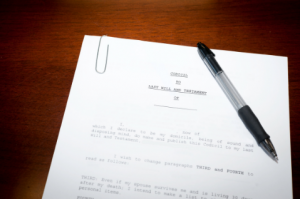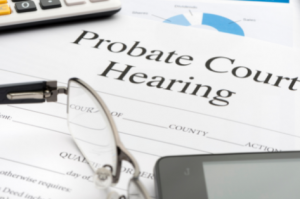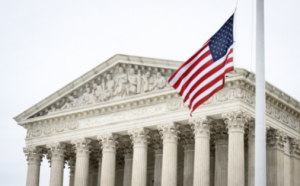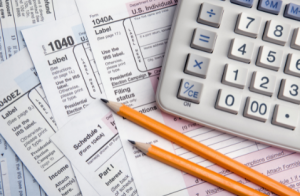
Your Personal Representative/Executor
Updated: January 11, 2024
A personal representative, also know as an executor, is the person or persons you name to settle your will. They have the most important role in seeing that your estate is handled according to your directions after your death. They are named in your will and must be approved by the probate before they can assume their role.

Being an executor can be a complex and time-consuming process, so your executor is entitled to a fee for their role in closing out your estate. However, unless they are a beneficiary, they are not entitled to proceeds from the sale of the property of your estate. Many states mandate this fee and some states govern what the executor is paid based on the size of the estate.
All 50 states and the District of Columbia require some executors to post a financial bond, similar to a bail bond.
- The bond protects your beneficiaries in case the executor mishandles the estate’s assets by using the money to reimburse any losses incurred by the mismanagement.
- The amount of the bond increases with the value of the estate.
- Bonds for executors can be called probate bonds, executor bonds, or administrator bonds.
- Your executor will need to check their state’s executor bonding laws to see if they need one.
- If the estate is managed properly, the full amount of the bond is returned to the executor.
Choosing a Personal Representative/Executor
Choosing an executor can be challenging. Most married couples choose their spouse, but it is also common to name an adult child, parent, sibling, or capable friend. You may prefer to choose a professional such as a lawyer, accountant, bank, or trust company. This is more expensive up front, but their experience may save money in the long run.
If you do not choose an executor, the probate court will choose one for you.
- They will usually choose your surviving spouse (or partner in a registered domestic partnership or civil union, if recognized in your state).
- If you do not have a surviving spouse, they will go down a list of other persons in the following order: your children, grandchildren, parents, siblings, another beneficiary of the will, or a creditor hoping to get paid from the estate who requests the position.
- If there are no family, beneficiaries, or creditors, the court will hire someone commonly called the “public administrator.”
There are some restrictions on your choice of personal representative, some vary by state.
- They must be at least 18 years old in most states, 19 years old in a few states, and over 21 in others.
- Only U.S. residents are eligible.
- They cannot have been judged incapacitated and/or unable to handle your estate by a court.
- They should not have been convicted of a felony, although some states are less strict than others.
- Most states don’t require an executor to be a resident of the state, although some only allow residents of the same state to serve.
- There may be additional stipulations in some states such as sobriety, literacy, or similar qualifications.
Choosing the Right Person for the Job
 Choose an executor who is honest and whom you trust explicitly, who will perform their responsibilities in good faith (a legal concept known as fiduciary duty), and will be able to make impartial, objective, and difficult decisions. It is best if they:
Choose an executor who is honest and whom you trust explicitly, who will perform their responsibilities in good faith (a legal concept known as fiduciary duty), and will be able to make impartial, objective, and difficult decisions. It is best if they:
- Are organized and good with details and deadlines;
- Have good financial management and communication skills or willing to consult someone who does; and
- Live close enough to be able to fill out paperwork and carry out duties of the estate without having to drive long distances to do so.
You should talk to the candidate about their willingness to take responsibility before officially naming them as personal representative. Make sure they are aware of the entire range of responsibilities, possibility of needing an executor bond, and time commitment (up to a year or more) involved in carrying out their duties as personal representative.
In most states the Probate Court has the final say on who is qualified to serve as a personal representative and will not allow anyone who is not capable to be or remain a personal representative of your estate.
Your chosen executor can decline the position or resign at any time. Common reasons may include that they:
- Live too far away;
- Are concerned the heirs will fight over the estate’s assets and make the job too stressful;
- Are in poor health or will be too grief-stricken to take on the job;
- Will not be able to work with their co-executor;
- Feel that they are not detail-oriented or otherwise capable of handling the duties; and/or
- Are too busy with other responsibilities, such as work or caregiving.
Choose an alternate executor in the event that your:
- Spouse is your executor and you divorce;
- First choice resigns or something happens to them; and/or
- Executor becomes unwilling or unable to perform their duties upon your death.
Your executor may be more comfortable if they consult an attorney to help them with the process. The attorney can assure that they properly comply with their duties.
Tasks of an Executor
Being chosen to be a personal representative is a significant obligation, so it is important to be aware of what will be expected of them. There are many ways you can reduce their burden while you are alive.
- Provide them with detailed information about your estate and your plans for it.
- Organize your estate and make sure all of the details are easily accessible.
- Review your estate on a regul
 ar basis and keep your personal representative informed of any changes to your estate.
ar basis and keep your personal representative informed of any changes to your estate. - Keep a list of all the people they need to contact after your death along with detailed contact information.
- Anticipate any possible disputes between your personal representative and beneficiaries, and either try to resolve them before your death or add details to your will that will prevent any disputes.
- Clearly define the responsibilities of co-executors to avoid conflicts among them.
The personal representative’s role usually begins right after your death and includes handling all the debts, loose ends, instructions in the will, and more that come with an estate. If you become incapacitated, they would begin their duties at that time.
Aside from possible disputes with beneficiaries and/or co-personal representatives, there are other drawbacks to being a personal representative.
- The duties of a personal representative can take a lot of time and could go on for over a year until the estate is settled.
- The personal representative’s compensation may not always be enough to cover out-of-pocket expenses. Even costs that are reimbursable may not be repaid until the estate is settled.
- Personal representatives are responsible for filing all necessary income tax returns and paying all taxes. If they distribute the estate before paying these taxes and don’t have enough left to cover them, they will need to pay them out of their own funds.
- They may be subject to liability for damages to the estate or be removed if they fail to follow the estate plan’s directives or use the money for their own use.
With this much responsibility, prospective personal representatives are free to refuse if they do not feel able to manage it or are not interested. If accepted, their job as personal representative may be easy or challenging to carry out depending on the size and complexity of your estate.
With few exceptions, the probate court supervises your executor while the will is being settled to ensure that your wishes specified in the will are carried out in good faith and with the utmost honesty and diligence.
- Before the probate court becomes involved it will be up to your executor and your family to ensure this.
- Since a joint will does not usually go through probate court until after the second spouse dies, the court will not be involved if you had one.
There are basic tasks your personal representative is legally responsible for. The order in which they are done is logical and depends on certain tasks being completed before they can proceed to the next and how quickly they need to be done.
 Their first task is locating, reading, and understanding the will, including any codicils, to know how they are to proceed. It is best if they have done this prior to your death.
Their first task is locating, reading, and understanding the will, including any codicils, to know how they are to proceed. It is best if they have done this prior to your death.
- This prior knowledge is key since they may be required to immediately notify certain people based on specific instructions in the will.
- If that person is not your executor, they will need to know your preferences for your funeral/burial, who will arrange this, and how to contact them.
- They may need to arrange emergency care and guardianship for minor children, dependents, and pets, according to the will.
- Your family can help by also being aware of the details of your will, especially those tasks that will need to be done before the probate court gets involved.
Once the funeral and burial is done, it is time to prepare for probate. There are many steps to get ready.
- Locating and collecting all documents, including multiple copies of the death certificate, account numbers, and other information needed to help manage and settle the estate. This may include vehicle titles and registrations, loan documents, credit card statements, contracts, deeds, insurance policies, recent tax returns and W-2 forms, and Social Security card.
- Finding, conducting an inventory, and securing all personal property and other assets in the estate.
- Since inheritance laws make it easy to transfer certain properties and assets without probate (such as property held jointly by a spouse) and many other assets allow naming a beneficiary directly, some of these may not be included in the will.
- These assets can go directly to the beneficiary once your executor notifies the appropriate companies and/or people listed below.
- Determining which assets will be subject to the probate process.
- This could include financial holdings without a designated beneficiary such as stocks, bonds, annuities, retirement accounts, or money market investments, real estate, direct investments, and/or collectibles like art.
- Arrange for appraisal if necessary, especially assets that need to go through the probate process. The value of the estate is estimated either for the date of death or the alternative valuation date as provided in the Internal Revenue Code (IRC)
- Finding and contacting all the benefactors/heirs, usually includes a Notice to Heirs and contacting their employer if they were still working.
Next, decide what kind of probate is needed and perform the following steps.
- Inquire if the value of the estate allows an expedited, simplified, or “fast pass” process that is less expensive and time-consuming. Most states will have this for small estates. The will still needs to be filed even if an appearance in probate court is not needed.
- File a copy of the will to be validated by the probate court in the county where you owned property.
- Apply for a Letter of Testamentary.
- This is the legal document issued by probate court that appoints them as a personal representative, gives them the power to act in a fiduciary manner on behalf of the estate, and allows them to represent the estate if required to appear in court on behalf of the estate.
- They will also need to file the death certificate in the probate court along with forms asking for the letter of testamentary. The personal representative gives the court their information, documentation of their identity, some basic information about the value of the estate, and the date of death.
- The court schedules a hearing to verify the information and assure that the personal representative meets state qualifications and is capable of performing the tasks. After several weeks to several months, they will be issued a letter of testamentary.
- The personal representative can then present the letter of testamentary to show that they have the legal authority to act on the estate’s behalf along with the death certificate when handling estate business.
- Personal representatives appointed by the court when there is no will need to apply for a Letter of Administration.
- Submit a detailed inventory of the estate’s assets if required in your state, including items of personal property without title documents such as furniture and appliances, clothing, household goods, and other personal items.
- Hire a probate lawyer to assist in some of these tasks, if necessary. The attorney will be paid from the estate’s assets.

If approved, the court will issue letters of testamentary/office or letters of authority, which they will need along with the death certificate for future actions on behalf of the estate.
- This is needed to unfreeze the estate and allow them to manage it.
- They will likely need an attorney’s assistance to accomplish this.
Notify your beneficiaries about the details of the probate hearing
Once the probate process has started, they will continue to manage the estate and begin to settle the estate finances and arrange for payment of estate debts and expenses. Depending on the details of the estate, many specific duties may be required.
Collect and create an inventory of all personal property and assets in the estate and protect them until distribution determines who inherits the property.
- They should transfer all securities to their name and continue to collect dividends and interest on behalf of the heirs.
- Locate and inventory all real estate deeds, mortgages, loans, leases, and tax information. Maintain any insurance that covers these assets.
- Provide immediate management for rental properties.
- Arrange ancillary administration for out-of-state property.
- Collect money owed, including any back wages or unused vacation/earned time, and check interests in estates of other deceased persons.
- Locate all household, personal effects, and other personal property in order to inventory and protect them, including cash and other valuables that may be hidden/secured.
- Arrange for appraisal of items.
- Collect all life or other insurance proceeds payable to the estate. This may involve filing a claim on behalf of the estate.
- Work closely and coordinate with the Trustee of any trusts.
 Notify banks, credit card companies, government agencies, utility providers, lawyers, brokers, landlords/tenants, insurance agents, doctors, Social Security Administration, VA, employer or employees, etc. of your death. This includes any company that may have any of your assets which are jointly owned or with named beneficiaries that will be transferred directly to that beneficiary.
Notify banks, credit card companies, government agencies, utility providers, lawyers, brokers, landlords/tenants, insurance agents, doctors, Social Security Administration, VA, employer or employees, etc. of your death. This includes any company that may have any of your assets which are jointly owned or with named beneficiaries that will be transferred directly to that beneficiary.
- Cancel any credit cards that are still open.
- Discontinue leases on rental property no longer needed.
- Redirect or forward mail and other correspondence.
- Discontinue any other unneeded services such as health insurance, phone service, cable/internet, etc.
- Stop all subscriptions (paper and web-based)
If your executor was not already a trustee or co-owner of your accounts they will need to set up an Estate Account.
- This will include a bank account for incoming funds such as paychecks, retirement settlements, or other money that is owed to you.
- They will use this to pay current bills such as mortgages, utilities, homeowners insurance, etc. that will need to be paid throughout the probate process.
- Disputes between beneficiaries regarding the estate account need to be initially handled by the personal representative.
Maintain the property until it can be distributed to the beneficiaries or sold.
- This includes maintaining a house or other properties that require upkeep.
- Decide whether the property needs to be sold to pay debts.
- Locate and secure any safe deposit boxes.
Settle the estate’s debts and taxes. The personal representative should retain and prepare a statement of all receipts and disbursements.
- Notify creditors according to state procedures. For known creditors they may send a Notice to the Creditor of Death form. For some it may require an advertisement or Notice to Creditors in the local newspaper to file a claim against the estate within a certain amount of time, usually determined by your state.
- Validate claims by creditors and pay any legitimate ones. Typically creditors have a limited amount of time from the date they were notified to present any claims against the estate for money owed to them.
- File income tax returns from the first of the current year until the date of death.
Use estate assets (including selling them if necessary) to pay any debts such as federal estate taxes and state taxes (if the estate is large enough), mortgage, car loans/leases, credit card bills, student loans, personal loans, and/or outstanding taxes.
 Once this is done, they may need to petition the court for the authority to perform specific tasks indicated in the will unless your beneficiaries waive the requirement as allowed under some state laws.
Once this is done, they may need to petition the court for the authority to perform specific tasks indicated in the will unless your beneficiaries waive the requirement as allowed under some state laws.
- This petition may include an accounting of how the assets were managed during the probate process.
- Once the petition is granted, they may:
- Draw up new deeds or legal title for property, transfer stock, liquidate assets and begin distribution of the remaining assets according to the wishes expressed in your will;
- Transfer money to the trustee if the will created a trust for the benefit of a minor, spouse or incapacitated family member; and/or
- Dispose of any remaining property.
Once they have completed all these tasks, they will apply to the probate court for an official release of their personal representative duties at which point the estate will be closed.
Go to Personal Representative Duties Checklist for a downloadable PDF to help with the process.
The Steps to Take After a Loved One has Passed Away section may have details on how to accomplish some of these tasks.
Since your representative cannot apply for probate for many months, many of these requests and/or duties may have already been performed.
The Estate Account
An estate account is a new bank account opened by your executor soon after you have passed away. The account is used to pay day-to-day administration expenses as well as for the final distribution of funds to the estate’s beneficiaries.

If your executor was not already a trustee or joint holder of an existing bank account, as would be the case with your surviving spouse or if your children had financial power of attorney prior to your death, one of the first steps they will need to take is to open an estate account.
Although the probate court will be involved, an estate account is probably the better option for both your estate and your executor, even if your executor was a co-holder of a joint account before your death. This is true even if your spouse was the co-holder and is the executor.
- The estate account will keep the estate money separate from that of executors and individual beneficiaries for both spending and tax purposes.
- It will prevent disputes and protect your executors from liability or your beneficiaries from using estate money for their own purposes.
- Probate courts are more willing to open the estate (unfreeze your assets) to deposit them in an estate account since the money will remain in the estate and can only be used for estate purposes.
- The existence of the estate account gives the executor the ability to endorse and deposit checks made out to you after your death.
- An estate account controlled by your executor reduces the risk of your funds being used in a way not specified in your will.
- Having all the estate’s money in a single account allows the executor to more easily use and transfer estate funds to beneficiaries, and makes record keeping and managing incoming and outgoing funds easier.
- The only funds that can be deposited belong to the estate, which may not be true if the executor is the holder of the account.
- This will simplify the calculation of taxes since the estate will clearly own any income generated by the account.
- All the records that may be required for tax or other purposes are readily available to the executor.
While a joint account avoids the probate process there are more drawbacks.
- Funds in a joint account would be accessible to any co-holder before your death, making them able to remove money without your consent.
- Assets in a joint account are accessible to creditors of any joint account holder.
- When you pass away the other co-holder gets title to their half of the account’s remaining funds. Your half of the estate will be distributed according to the executor.
- If your executor passes away prior to the settlement of the estate, they will not have any say in where your half goes.
- Unless you already have, amend or create a will that specifies this, your co-holder will be able to determine where the money goes regardless of your wishes for the funds.
- Money added to a joint account after your death could be considered the co-holders’ and used accordingly.
- The executor may become liable if a co-holder is accused of spending the estate’s funds inappropriately. If other beneficiaries do not receive any of this money, they may want to contest the will.
- Any jointly held account intended to be distributed to other beneficiaries after your death creates a unique situation for the co-holder if it is not converted to an estate account. Similar consequences can occur if the executor opens an account in their own name to manage estate finances.
- The major issue arises if the surviving account holder continues to add money to a joint account. Since other beneficiaries are named, the account could be considered part of the estate and this would result in mixing their money with the estate. Additional concerns develop if they are also the executor.
- Other beneficiaries may be able to contest the will and receive some of this money.
- If the surviving account holder dies prior to the settlement of the estate, they may not have any say in where their half goes unless this is specified in the will.
- If the surviving account holder was also the executor, they risk liability if they are accused of spending the estate’s funds for their own benefit even though it is their personal assets being used.
Setting Up an Estate Account
The process of opening an estate account can be straightforward with simple estates, but with larger and more complex estates it may be best to hire an estate lawyer. They can steer your executor through the process, make them aware of important details, advise them if disputes occur, and/or even represent them should there be any liability issues.
 The probate process begins by submitting the will along with the death certificate. This allows your executor to manage the estate.
The probate process begins by submitting the will along with the death certificate. This allows your executor to manage the estate. Obtain a tax ID number for the estate account.
- Gather all the necessary documents and bring them to the bank. Bank policies vary as to the documents required, but all will ask for the death certificate and the court document naming the estate’s executor or administrator — Letter of Testamentary or Letter of Administration
Open the estate account by filling out all the required forms.
- Associated costs are similar to those to open any bank account.
- In some banks this might only be the cost of ordering checks to make payments from the account.
- The account is best opened in the same state where you lived, possibly in a bank that you used.
- The account will then be held in trust for beneficiaries until the funds provided for in the will are distributed to them when the estate is settled.
- The executor should transfer money from checking and savings accounts or other financial assets such as stock dividends and rental income to the estate account once they are confirmed by probate. This does not apply to any assets already accounted for that have existing beneficiaries or are in trusts.
If an estate account already exists with the beneficiaries as co-holders of the account, control of the account goes directly to them after your death. However, the money can only be used for estate purposes according to your wishes, as opposed to a simple joint account which the surviving co-holder controls without limitations.
Using an Estate Account
Your executor will need a checking account or a money market account to write checks or use a debit card for day-to-day expenses.
They can only use funds in the account for estate purposes such as to pay day-to-day expenses, bills, debts, funeral expenses, etc.
If there is more than enough money to pay bills and debts, an estate savings account or an estate money market account can be opened to generate more interest. If specified in the will, the money can be invested.
Closing an Estate Account
Before the estate account can be closed your executor must first close the probate process.
- How to do this depends on the state in which probate takes place, but it typically involves a final accounting showing all the transactions using the estate’s funds during the probate process.
- This final accounting is typically made after payment of all the estate’s debts and taxes.
 Only after probate is complete and final distribution of the estate funds is permitted can the account be used to make the final payments to all of the beneficiaries.
Only after probate is complete and final distribution of the estate funds is permitted can the account be used to make the final payments to all of the beneficiaries.
After this is done the account itself can be closed. In most cases, this may be as simple as filling out forms required by the bank.
Digital Executor
Like a traditional executor, a digital executor can be appointed in your will. If you’ve already created your will without one, you can either re-write your will or create a codicil to amend it. Some online legal services have altered their forms to allow you to name a digital executor.
The responsibilities of the digital executor are complementary to your traditional executor. They will manage your digital assets after you die including paying any debts or maintenance fees on behalf of your digital estate and making sure they are distributed to your beneficiaries according to your wishes.
A digital executor’s tasks can include:
- Archiving personal files, photos, videos, and other content;
- Deleting files from your computer or other devices, or erasing devices’ hard drives;
- Maintaining certain online accounts which may include paying for services to continue;
- Closing certain online accounts such as social media accounts, subscription services, or any accounts that are paid for;
- Transferring any transferrable accounts to heirs;
- Collecting and transferring any cryptocurrency or usable credits to your heirs;
- Transferring any income-generating items (websites, blogs, affiliate accounts, etc.) to your heirs; and/or
- Informing any online communities or online friends of your death.
In most states, a digital executor is not recognized as a distinct entity. Check with a local estate planner about the laws around digital estate planning in your state. If not, you can still create a digital estate plan and figure out who you’d like to carry out that plan. You may name that person as a co-executor in your will knowing that they will be responsible for your digital estate.
The Digital World section has details on how to accomplish many of these tasks.
Resources
- After The Funeral: An Executor’s Checklist. American Academy of Estate Planning Attorneys website.
- Checklist of Executor’s Duties. Manulife website.
- Executor Duties Checklist. Law Depot website.
- Restrictions on Who Can Serve as Your Executor. State-specific restrictions on executors from NOLO.
- Sample Language To Use When Naming A Digital Executor. everplans website.
- An Executor’s Legal Duties. Justica website. Updated: November 2023 Accessed: January 11, 2024.
- Beattie A. The Executor Checklist: 7 Tasks Before They Die. Investopedia website. Updated: December 5, 2021. Accessed: December 14, 2022.
- Checklist for Executors. NOLO website. Accessed: January 11, 2024.
- Courtney M. Will Executor Duties FAQ. FindLaw website. Updated: July 24, 2023. Accessed: January 11, 2024.
- Executor of Will Checklist. Ramsey Solutions website. Updated: October 4, 2023. Accessed: January 11, 2024.
- Executor of a Will Checklist (Your Step-by-Step Guide). Farm Bureau Financial Services website. Updated: August 23, 2023. Accessed: January 11, 2024.
- Flannery M. Checklist: What an Executor Does After a Death. Cake website. Updated August 22, 2022. Accessed: January 11, 2024.
- Folk A. What Is an Estate Account? Legal Match website. Updated: June 29, 2020. Accessed: January 11, 2024.
- Fontinelle A, Rothstein R. Executor of Estate: What Do They Do? Forbes website. Updated: June 14, 2023. Accessed: January 11, 2024.
- Guidelines for Individual Executors & Trustees. American Bar Association website. Accessed: January 11, 2024.
- Hayes A. Notice To Creditors. Investopedia website. Updated: September 29, 2022. Accessed: January 11, 2024.
- How to Appoint a Will Executor. Rocket Lawyer website. Accessed: January 11, 2024.
- How to be the Executor of an Estate. Law Depot website. Updated: September 6, 2023. Accessed: January 11, 2024.
- How To Choose an Executor For Your Will. FindLaw website. Updated: January 8, 2024. Accessed: January 11, 2024.
- How To Name A Digital Executor. everplans website. Accessed: January 11, 2024.
- Kagan J. What Is an Executor? Definition and Responsibilities. Investopedia website. Updated: July 26, 2022. Accessed: January 11, 2024.
- Kagan J. Personal Representative: Advantages and Disadvantages of The Role. Investopedia website. Updated: June 25, 2023. Accessed: January 11, 2024.
- Kaminsky M. Top 10 Duties of an Executor of a Will. legalzoom website. Updated: December 7, 2023. Accessed: January 11, 2024.
- Kaminsky M. What Does an Executor Do? legalzoom website. Updated: November 21, 2023. Accessed: January 11, 2024.
- Ora Lobell K. I’ve Been Named the Executor of a Will. Now What? legalzoom website. Updated: November 21, 2023. Accessed: January 11, 2024.
- Phelps N. 20 Key Duties of an Executor (Checklist). Atticus website. Posted: August 31, 2022. Accessed: January 11, 2024.
- Randolf M. Who Can Serve as Executor? Legal Restrictions. NOLO website. Accessed: January 11, 2024.
- Segal B. What To Do If You Are the Executor of a Will. msn website. Posted: August 25, 2021. Accessed: January 11, 2024.
- Waters S. How to be a Good Executor of a Will or Estate. AARP website. Posted: May 7, 2021. Accessed: January 11, 2024.
- Wathne O. What Does an Executor Do? FindLaw website. Updated: September 14, 2023. Accessed: January 11, 2024.
- Wong B. 5 Reasons to Open an Estate Account. legalzoom website. Updated: November 21, 2023. Accessed: January 11, 2024.
- Wong B. How to Open an Estate Account. legalzoom website. Updated: November 21, 2023. Accessed: January 11, 2024.
- You’ve Been Named as Your Parent’s Executor. Now What? Morgan Stanley website. Updated: November 2, 2023. Accessed: January 11, 2024.
